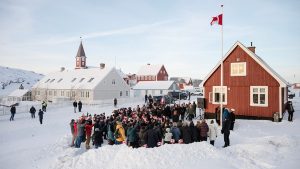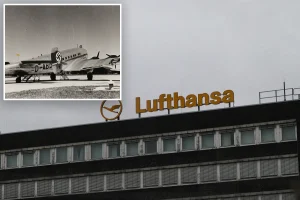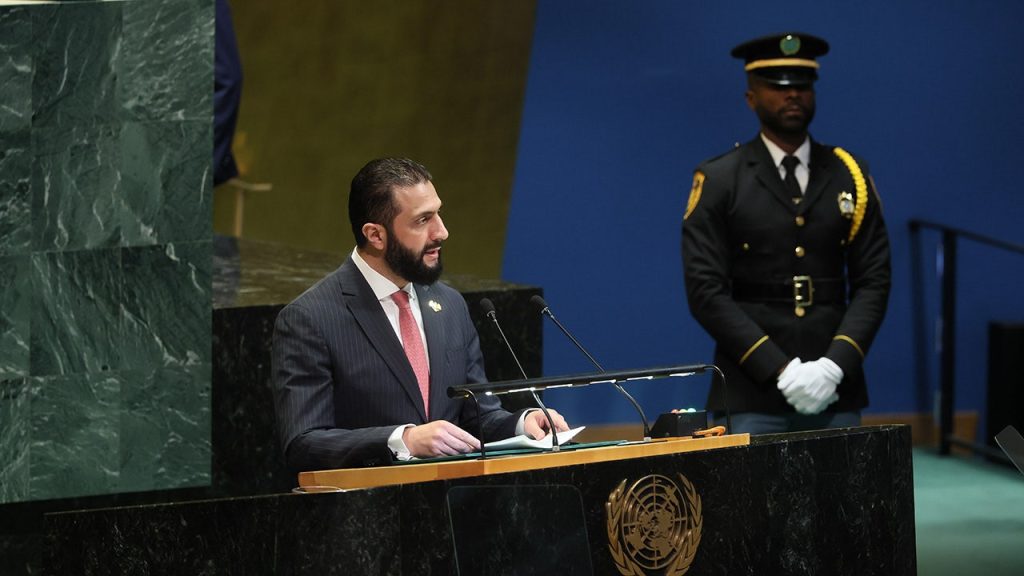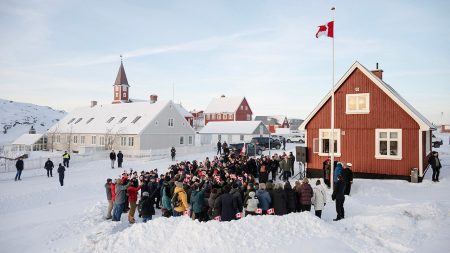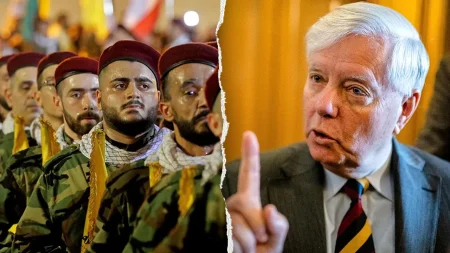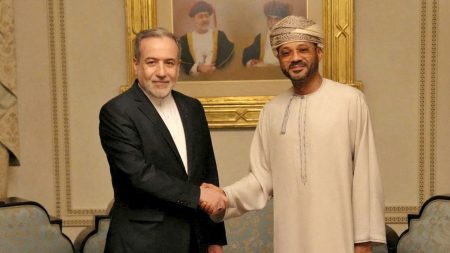Syria’s New Chapter: President al-Sharaa Makes Historic UN Appearance
In a momentous occasion for Syria and its citizens worldwide, President Ahmad al-Sharaa addressed the United Nations General Assembly on Wednesday, marking the first time in nearly six decades that a Syrian leader has spoken before the international body. The historic speech drew thousands of Syrian supporters to the streets outside UN headquarters in New York, where they celebrated what many described as a turning point for their war-ravaged homeland. For the Syrian diaspora, many of whom fled during the devastating 14-year civil war that has torn apart their country, al-Sharaa’s appearance represented both a symbolic milestone and a deeply personal moment of potential healing. Supporters waved Syrian flags, carried hopeful banners, and chanted passionately for peace and reconstruction, viewing their president’s presence at the global forum as a sign that Syria might finally be emerging from its long isolation.
Syria’s Information Minister Hamza Mustafa, who joined the demonstration, captured the emotional significance of the day. “It’s a historical moment for all the Syrian people — after 14 years of conflict, after revolution, after a lot of sacrifice, now we are here representing the Syrian people,” he told reporters. “We are gathering with the Syrian people to say that we are all serious in our struggle for a united and sovereign Syria.” Mustafa also expressed gratitude toward the Trump administration for steps to ease sanctions, saying, “As a government, we say thank you to Mr. Trump for his courage in lifting sanctions on Syria.” This sentiment of appreciation underscores the Syrian government’s eagerness to rebuild international relationships, particularly with the United States, as it seeks to rejoin the global community after years of isolation and conflict.
In his address to the General Assembly, President al-Sharaa focused on themes of renewal and reconciliation, calling for the complete lifting of international sanctions and pledging to pursue “a new Syria built on unity, sovereignty, and peace with its neighbors.” He acknowledged the “untold suffering” the conflict had brought to Syrians and emphasized that his people “deserve the right to rebuild their lives, their homes, and their country.” These statements reflect a significant shift in rhetoric from previous Syrian leadership, suggesting al-Sharaa may be positioning his government as one focused on reconstruction rather than continued conflict. Meanwhile, Syria’s Minister of Emergency and Disaster Management, Raad Saleh, addressed questions about a potential U.S.-brokered security agreement with Israel, telling reporters: “Syrians are not looking for any conflict anymore — Syrians are only looking for reconstruction and rebuilding,” though he deferred on specific political decisions to the president.
The regional context of al-Sharaa’s UN appearance cannot be overlooked, as Israel has conducted dozens of strikes across Syria in recent months, targeting what Israeli officials describe as Iranian-backed forces, weapons depots, and positions near the Israeli border. These operations have been framed by Israeli officials as both a warning to Syria’s new leadership and as protective measures for vulnerable minorities such as the Druze, who have faced attacks under al-Sharaa’s government. Israeli Prime Minister Benjamin Netanyahu, scheduled to speak at the UNGA later in the week, has already stated that any potential deal with Syria “is contingent on securing Israel’s interests,” including the “demilitarization of southwestern Syria and safeguarding the Druze.” These conditions highlight the complex security considerations that will need to be addressed if Syria truly wishes to normalize relations with all its neighbors.
The rally outside the UN, organized by Dr. Hicham Alnachawati, emphasized that Syria’s new leadership genuinely desires peace—including with Israel, a notable shift in the country’s historical stance. “This is a historic moment for us as Syrians. We haven’t seen a president give such a speech at the UN in over 57 years,” Alnachawati said. “We are hoping that this message of peace and prosperity will encourage other world leaders, and especially President Trump, to support lifting the remaining sanctions so we can rebuild a new Syria.” Alnachawati went further by directly connecting Syria’s future to broader regional reconciliation: “We sent a message of peace to establish relations with our neighbors, especially Israel. Let’s extend the Abraham Accords here — this is an opportunity for the Trump administration to lead a peace process. Israelis are looking for the same thing, and Syrians are ready for peace, reconstruction and development.” This explicit reference to the Abraham Accords represents a significant departure from Syria’s traditional position toward Israel and suggests a potential opening for diplomatic breakthroughs in the region.
While al-Sharaa’s speech has been met with enthusiasm from many Syrians, his past as a wanted terrorist has drawn sharp criticism from Western officials. When questioned about this controversial history, supporters like Alnachawati argued that people can change, citing U.S. General David Petraeus, who has previously suggested that al-Sharaa might evolve into a statesman. “I listened to Petraeus, and he said he saw this man as having hope to change,” Alnachawati said. “He wants to unite Syria, achieve peace in the region and reflect that peace on the whole world.” For Syrian Americans like Shadi Martini, CEO of the Multifaith Alliance who fled at the start of the war, the day carried special significance. “It’s probably been 50 or 60 years since a Syrian president came to the U.N., so it’s very historic and emotional for a lot of Syrian Americans to see,” said Martini, who personally met President al-Sharaa in Syria a few months ago. “President Sharaa was greeted by so many presidents and foreign dignitaries, and hopefully there will also be a meeting with President Trump.” As Syria attempts to write a new chapter in its troubled history, the world watches to see whether al-Sharaa’s words at the UN will translate into meaningful change for a nation and people who have endured more than a decade of devastating conflict.
